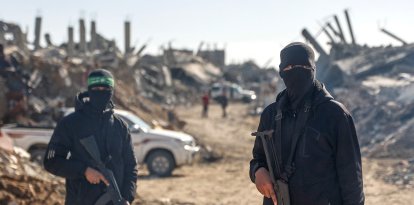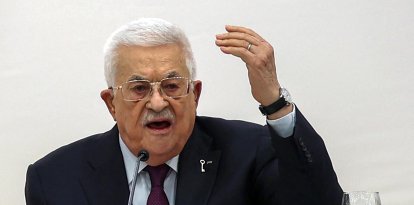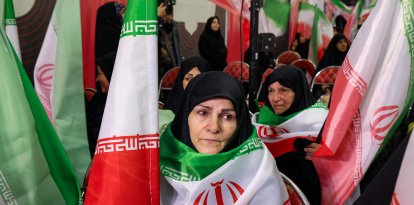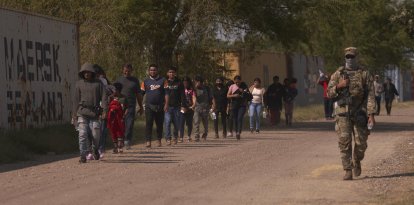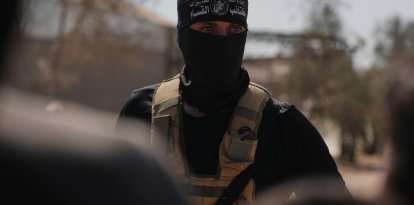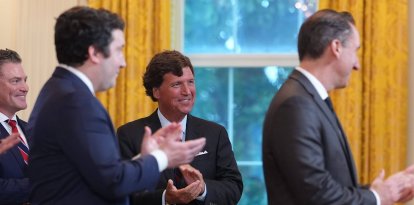Violence Becomes a Tool for Gustavo Petro’s Agenda in Colombia
Presidential candidate Miguel Uribe was the victim of an assassination attempt, and in the last hours several terrorist attacks have plunged the country into a violence not seen for decades. Meanwhile, the president, by decree, pushes forward his agenda.

Gustavo Petro
The terrible images of the assassination attempt on Miguel Uribe Turbay, pre-candidate for the presidency of Colombia, went around the world. Colombia has long been associated worldwide with periods of bloody violence, from which it recovered during Álvaro Uribe Vélez's presidency with support from the United States. Today, however, the country faces the troubling prospect of returning to those dark chapters, with many of the same underlying forces at play.
The information available so far suggests that the attack against Uribe Turbay was ordered by the "FARC dissidents." During the government of Juan Manuel Santos, an agreement was signed in Colombia with the guerrillas, which, among other things, gave the criminals seats in Congress. Thousands of guerrillas continued to commit crimes, and the left said they were "dissidents." The truth is that the FARC never intended to lay down their arms, and that was always known to the majority of Colombians, who voted against the agreement.
So, the culprits of the assassination attempt and of the more than 20 terrorist attacks that the country has experienced in the last hours are the same ones that had Colombia plunged into violence before 2002, when Alvaro Uribe came to power. They are the FARC. But now there is also a very particular president. Gustavo Petro was a member of the Marxist guerrilla group M-19, guilty of one of the worst terrorist attacks in the history of Colombia: the seizure of the Palace of Justice. Even in his legal life, as senator, Petro made a whole career serving as the political arm of the guerrillas. Always defending them, always benefiting them.
As president, his actions have been the same. The FARC, which some still call "dissidents," has become stronger because the government stopped pursuing them and also stopped eradicating cocaine, which is the source of money for these criminals. Whatever the level of relationship between the president and the FARC, be it direct collaboration or just turning a blind eye and letting them act, it is clear that Petro is strengthening them. These are facts.
Particularly in the attack against Uribe Turbay, there are clear facts that show the Government's responsibility. Petro attacked the candidate directly from his social networks. The president's incendiary rhetoric is evident. Uribe Turbay had asked for his security to be reinforced, and the request was denied. In addition, the attacker for months was part of a Petro Government program in which criminals are paid for "not committing crimes," something that only happens in a country with a former guerrilla at the helm. This means that the person who made the attempt on the life of the presidential candidate received millions of Colombian pesos from the government.
Now the Prosecutor's Office has announced that since he is a minor, the attacker will enter a program in which, among other things, they will change his name and assign him a security scheme, and he and his family will receive a monthly allowance. Petro did not have enough to pay him for months to supposedly not commit a crime, but now he will shower him and his family with benefits. It is inevitable not to wonder if what Petro is doing is forming his own army in the cities, recruiting young delinquents to whom he pays monthly allowances instead of sending them to jails or juvenile correctional facilities.
It is true that these benefits are part of a general program of the Prosecutor's Office for minors, but they are usually given to witnesses who are collaborating in the cases. This murderer is not collaborating; in fact, he pleaded not guilty, even though there are videos where he is seen shooting. Added to that, this is a case of supreme importance that puts at stake the democracy and stability of the country.
In the midst of all the chaos that Colombia is going through, Petro has decided by decree to call a "popular consultation" to push through two reforms that Congress had already rejected because they are harmful to the country. The president, then, is taking advantage of violence and terror to push forward his Marxist plans, bypassing the Constitution and the Congress.
What else will President Petro use this chaos for? Will it occur to him to say that next year's elections are cancelled because the country is in crisis?
Colombia is on the verge of returning to its worst times. The culprits of the attacks are the same as always, the FARC, but Petro seems to be collaborating and taking advantage of this painful and tragic situation.














